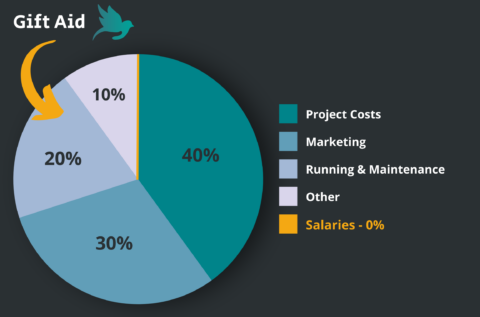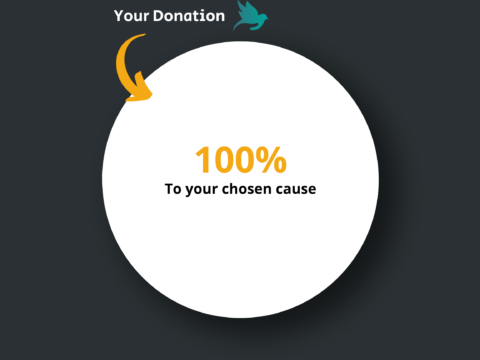Your Values and Priorities
Before you even begin to look at different charities, it’s crucial to understand what matters most to you. Here are some questions to ask yourself:
- What causes align with my personal values? Whether it’s poverty alleviation, disaster relief, or community support, knowing what you care about will help you narrow down your options. Most charities will outline their values very clearly on their About Page to help you know more about them.
- How much do you want to contribute? – Are you looking to donate money, volunteer your time, or both?
- Am I interested in local or global causes? – Do you want to make a difference in your local community, support nationwide initiatives, or contribute to global causes?
What Impact Do You Want To Make?
Beyond the desire to help, consider the scale and nature of the impact you wish to create. Are you drawn to immediate relief efforts, addressing long-term systemic issues, or supporting educational initiatives and awareness campaigns?
Immediate Relief vs Long-Term Change: Beyond the desire to help, consider the scale and nature of the impact you wish to create. Are you drawn to immediate relief efforts, such as providing food and shelter in the aftermath of a natural disaster? Or are you more interested in addressing long-term systemic issues, like poverty alleviation through education and skill development?

Educational Initiatives and Awareness Campaigns: Perhaps you’re passionate about raising awareness on critical issues. Many charities focus on educational programmes and campaigns to inform the public and drive change.
If both immediate relief and long-term systemic change are important to you, it’s entirely possible to find a charity that operates in both realms. For example, a charity like as-salaamfoundation provides immediate humanitarian aid during natural disasters and also empowers impoverished communities with the skills they need for long-term improvement.
A Charity’s Mission and Impact
Once you’ve identified your values and priorities, the next step is to find a charity whose mission aligns with them. Here’s how:
- What is the core mission of the charity? – Seek to understand the charity’s primary mission and the core issues it aims to address. Is their mission clear and aligned with your values and priorities?
- How does the charity plan to achieve its mission? – Investigate the strategies and initiatives the charity employs to fulfil its mission. Are they transparent about their approach, and does it align with your understanding of effective charitable work?
- What measurable impact has the charity made? – Assess the charity’s track record and impact. Have they provided data, statistics, or testimonials that demonstrate the real-world results of their work? Read stories or watch videos from those who have been directly impacted by the charity’s work.
By gaining a deep understanding of their mission, the strategies they employ, and the impact they have made, you can better gauge their commitment to their cause and their effectiveness in translating your support into tangible change.
Assessing Financial Accountability
Ensuring that your donation directly supports the charity’s programs is very important. To achieve this, it’s important to examine the charity’s financial efficiency and effectiveness.
It is required by law for charities to create financial reports. Annual reports allow charities to remain transparent with their donors and outline the progress They’ve made to reach their goals.
- Their expenses: The report should outline how the charity allocates its funds to various programs and initiatives. It helps you understand how much of the budget directly supports the charity’s mission. Some charities, like As-salaam, use Gift Aid to cover running costs, ensuring that 100% of your donation goes directly to the cause you care about.
- Their year-to-year trends: By comparing the current financial report with reports from previous years, you can identify any significant financial trends to help you assess the charity’s financial stability, growth, or potential issues.


Look for charities that allocate the majority of their funds towards their core initiatives and minimise administrative fees. A financially responsible charity is not only more likely to use your contribution wisely but also demonstrates a genuine commitment to ensuring that your generosity directly benefits the intended beneficiaries.
Summary
Choosing the right charity is a personal journey that requires careful thought and research. By considering your values, scrutinising a charity’s mission and impact, and assessing their financial accountability, you can make a meaningful contribution to a cause that matters to you.
Ready to make a difference? Explore our various initiatives and see how you can contribute today.




